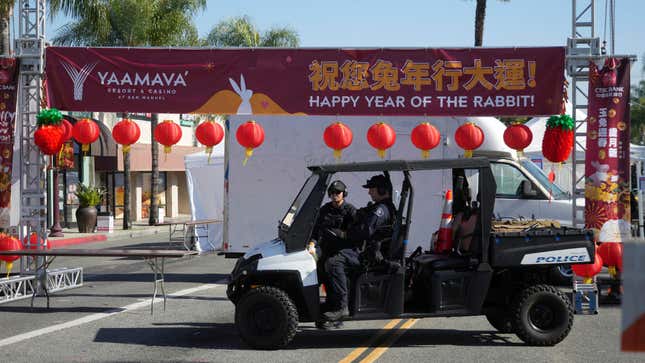The Monterey Park Shooting Suspect Is an Asian Man. It Was Still Racial Violence.
The shooting further builds upon the trauma that Asian communities in the U.S. have been reeling from since the pandemic inflamed anti-Asian hate nationwide.
Entertainment

As residents of Los Angeles County’s predominantly Asian-American suburb of Monterey Park spent the weekend celebrating Lunar New Year, a mass shooting at an Asian dance studio Saturday night killed at least 10, with some patrons left in critical condition. The shooter then moved to another nearby Asian dance studio in the town of Alhambra, where patrons were able to confront and disarm him. Through the semi-automatic gun the shooter left behind at the Alhambra studio, he was identified by police as Huu Can Tran, a 72-year-old man and Chinese immigrant. Tran was found dead of a self-inflicted gunshot wound in a white van on Sunday morning after fleeing the scene.
The unthinkable violence carried out at a place of celebration among an Asian community in Southern California, and on a holiday of joy and hope, recalls a familiar feeling of terror and vulnerability for Asian Americans in the U.S. Last year, one report identified almost 11,500 anti-Asian hate incidents since March 2020 and a 300% increase in these incidents between 2020 and 2021.
-

-

-

-

-

-

-

-

-

-

-

-

-

-

-

-

-

-

-

-

-

-

-

-

-

-

-

-

-

-

-

-

-

-

-

-

-

-

-

-








































